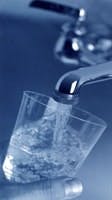The town of Hollis, N.H., has been chosen to participate in a unique water study to be conducted by the state Department of Environmental Services, the Telegraph reported.
Well tests being touted by the DES as the "first comprehensive ground water chemical quality study in New Hampshire," will allow the department to monitor and assess the water quality of existing aquifers, the report said.
Bill Beauregard of the Hollis Planning Board said that the data gathered during the study will be used to evaluate the health of aquifers, find trends in water quality, identify harmful chemicals, and "provide a baseline for future studies on the impacts of human activities."
According to him, Hollis was chosen for the study because the town started looking into gathering comprehensive information on area wells two years ago. He added that there isn’t much data available about what type of impact new housing developments would have on existing wells. The local study would create a starting point by establishing standards that could be examined after new development, according to the Telegraph report.
Participants would benefit from studies of their own water as well as that of their neighbors. With a large group of tests from one location, Beauregard said it is sometimes possible to determine where a chemical is coming from.
Beauregard and state geologist David Wunsch, who heads the New Hampshire Geological Survey Group of the state Department of Environmental Services, will oversee the efforts to contact 750 local residents who have well reports on file with the DES, the report said.
Minimum 100 participants are needed for the study. Those who qualify to participate will be able to get their water tested for $98. By participating, homeowners are saving about 30% of what it would normally cost to test a well. "This is more than a standard water test," Beauregard said. "This covers all chemicals that could possibly be in the water."
According to the Telegraph, the price covers the cost of testing for arsenic, bacteria, chloride, copper, fluoride, hardness, iron, lead, manganese, nitrate, pH, sodium, potassium, calcium, alkalinity, magnesium and sulfate. The cost also covers delivery of the refrigerated sample to the DES lab in Concord and a test report.
The water-sample collection days will be held at the Hollis transfer station on June 11 and June 18.
Source: The Telegraph


